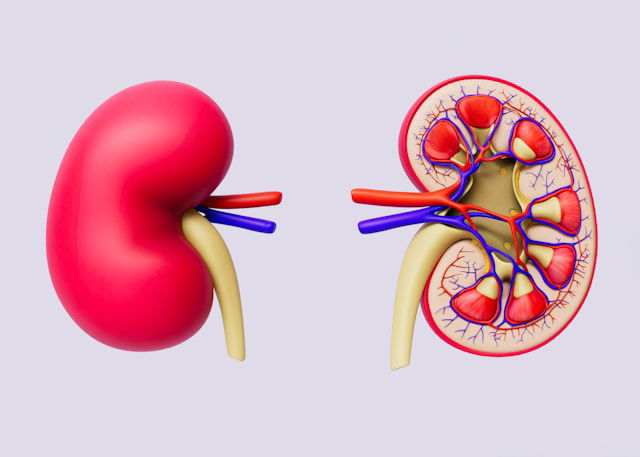
Proton pump inhibitors (PPIs) are common drugs used to treat heartburn, acid reflux, and a condition called GERD. You might know them by brand names like Prilosec, Nexium, or Prevacid.
Around 10% of adults in the United States take these drugs to relieve digestive symptoms that can be uncomfortable or painful.
While PPIs can be very helpful, new research shows that they might have hidden risks—especially when it comes to kidney health.
A team of researchers from the University of California San Diego wanted to learn more about these risks. They looked at data from the FDA Adverse Event Reporting System (FAERS), which includes reports from people who experienced side effects after taking medications.
The team focused on around 43,000 people who took only PPIs and did not combine them with any other drugs. They also compared these people to a group of about 8,000 who took a different type of heartburn medication called H2 blockers. H2 blockers, such as Zantac and Pepcid, work differently from PPIs to reduce stomach acid.
The results were concerning. About 5.6% of people who took PPIs reported kidney-related problems, compared to only 0.7% of those who took H2 blockers. In fact, people using PPIs were 28.4 times more likely to report chronic kidney disease.
They were also much more likely to report other serious kidney problems:
– 4.2 times more likely to have sudden kidney injury
– 35.5 times more likely to develop end-stage kidney disease
– 8 times more likely to experience unspecified kidney damage
The researchers also noticed that PPIs could cause imbalances in electrolytes, which are important for keeping the body’s fluids balanced and helping the kidneys work properly. These effects varied depending on the specific PPI used. However, all five PPIs studied showed an increased risk of kidney problems.
These results suggest that while PPIs are good at treating stomach issues, they might also increase the risk of serious kidney disease.
The World Health Organization considers PPIs essential medicines, and for many people, they are necessary for managing symptoms that affect daily life. But the researchers hope doctors will use this new information to help patients understand both the benefits and risks of these medications.
This is not the first time PPIs have raised safety concerns. A study from 2017 by the same university also suggested that PPIs might lead to chronic liver disease. This means that PPIs may affect more than just the kidneys over time.
If you are taking PPIs and are worried about kidney health, talk to your doctor. Regular check-ups and blood tests can help catch any problems early. For some people, switching to H2 blockers might be a better option, especially if they already have kidney issues.
More studies will continue to explore this topic. For now, the key takeaway is to be aware of the possible side effects and to always talk with your healthcare provider before starting or continuing any medication.
If you care about kidney health, please read studies about pesticide linked to chronic kidney disease, and this drug may prevent kidney failure in people with diabetes.
For more health information, please see recent studies about drug duo that may treat kidney failure, and results showing these vegetables may protect against kidney damage.
Copyright © 2025 Knowridge Science Report. All rights reserved.



